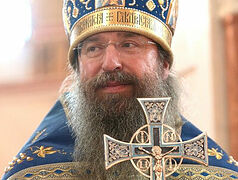Question: Tell me please about the Dormition fast. Should I hide my fasting at work if no one else is fasting?
The two-week fast from August 1 (14 n.s.) to 15 (28 n.s.) is called the Theotokos, or Dormition fast, because it is established before the one of the twelve great feasts of the Church, the feast of the Dormition of the Most Holy Mother of God. The Church leads us to the grace-filled transformation and emulation of the Mother of God, who before her translation to Heaven ceaselessly abided in fasting and prayer.
The Dormition fast was established very long ago. One of the earliest mentions of it can be found in discourses of St. Leo the Great. In a discourse enunciated in around the year 450, the holy hierarch of Rome calls it autumnal. It is close in its strictness to Great Lent. Only on the feast of the Transfiguration of the Lord is fish allowed.
According to the civil law of the Russian Empire (Code of Laws, XIV:177), during the period of the Great Fast and the Dormition Fast, theaters and other entertainment establishments were closed.
Even non-religious people know about the Dormition fast [in Orthodox countries], and therefore you should calmly observe it without hiding it. It is not the personal merit of the faithful to observe the Church rules. If someone has recieved a blessing from his spiritual father for one or another spiritual purpose to take on some spiritual labor that is not contained in the Church rubrics, then he should do so unnoticeably.
But an Orthodox Christian who violates the rules of fasting in the Church can easily tempt or scandalize unbelievers.





